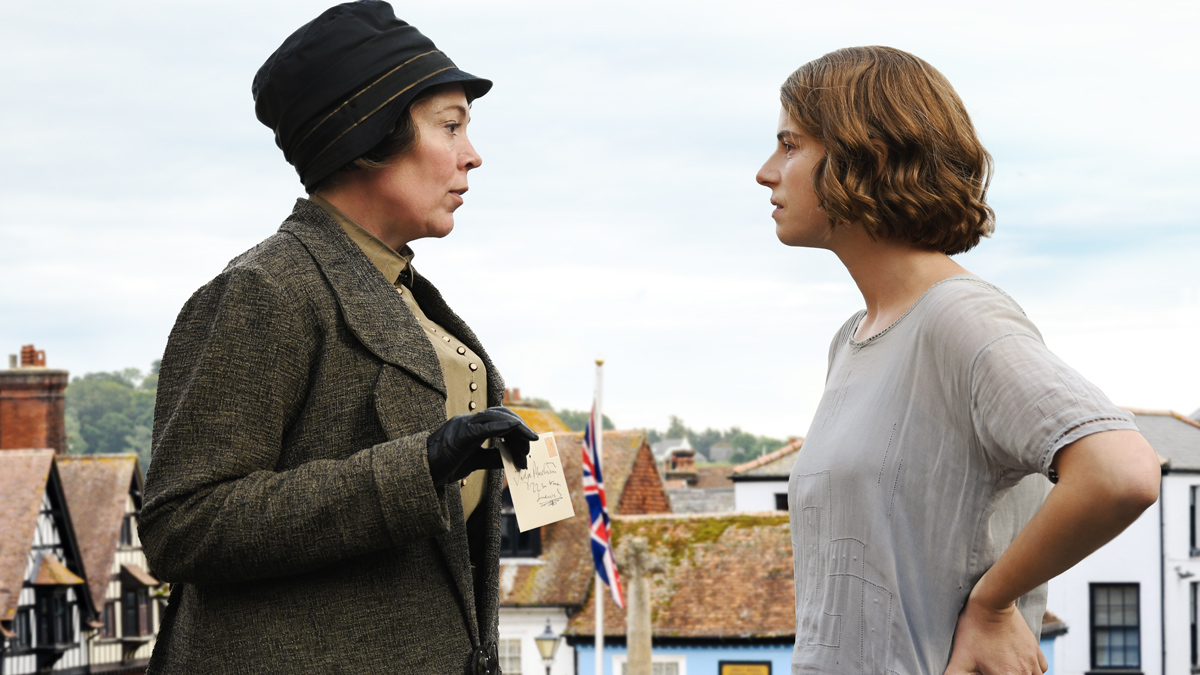‘Wicked Little Letters’ is based on the shocking true story that became a national scandal in the UK in the 1920’s. Over 100 years before the word ‘trolling’ became part of our vernacular, local women from the seaside town of Littlehampton found themselves receiving a series of obscene letters in the post. In particular the deeply conservative local Edith Swan was targeted with wicked letters full of unintentionally hilarious profanities, with her foul-mouthed Irish neighbour Rose the prime suspect.
The scandal is now the subject of a riotous new comedy, ‘Wicked Little Letters’, starring Olivia Colman and our own Jessie Buckley. The actors have worked together before, but have never shared a screen. Buckley played a younger version of Colman’s character in ‘ The Lost Daughter’, with both nominated for an Oscar for their roles. Colman says she was eager to be onscreen with the Kerry actor. “I just wanted us to work together and have scenes together and knew it would be good fun,” says Colman. “And also, I realised there was no one who would have been better at swearing in this way than Jessie.”
Colman plays Edith Swan, a terribly proper & conservative woman while Buckley plays Rose Gooding, a young woman whose very presence sends Edith’s conservative side flapping. She is an Irish immigrant, a little on the rowdy side, fond of drinking and swearing, and is a single parent, which is difficult in the 1920s. Society does not approve, and people are not afraid to say what they think about it, but Rose does not care what anyone else says.
Buckley instantly knew that she wanted to play Rose and said she laughed out loud while reading the script. “I thought that these women were just like the kind of women I know in my life who are really desperately trying to be able to say the things that they’re not meant to say and then have no other way to keep it in,” says Buckley. “It was really a no-brainer. I thought it was such a tonic. It feels so full of life and humanity and naughtiness.”
Unbelievably, the police get involved after more letters are sent & a female police officer, Gladys Moss, is tasked with finding out who the wicked letter writer is. The odds are stacked against Moss, who has to deal with sexism from her male colleagues.
The resulting case is the 1920s equivalent of Wagatha Christie. It was headline news in the papers. Everyone was talking about it; it was the biggest scandal to rock England in years – how could anyone write such filth? Just imagine what it would have been like if social media had existed back then?
Words:
Cara O’Doherty


